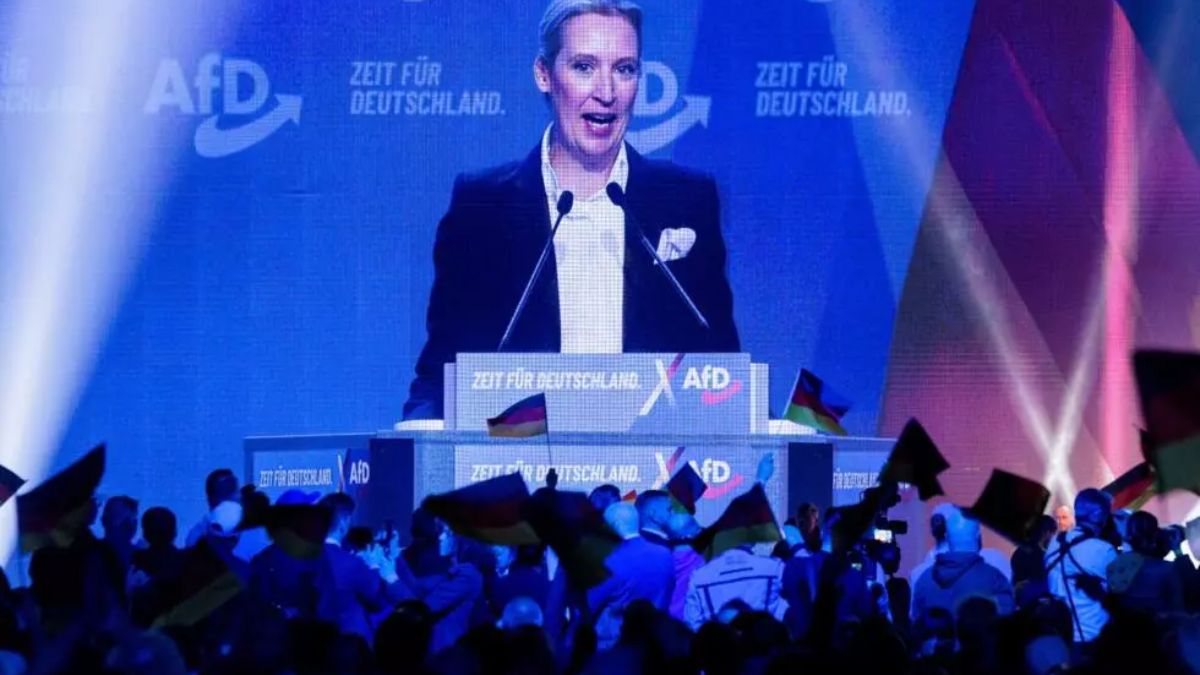For the first time, Germany’s far-right AfD has emerged as the most popular party in the country.
Ironically, the party’s popularity in a survey was reported around the same times as Friedrich Merz of CDU/CSU bloc struck a deal with SPD party to form the next government. Merz is set to be the next German chancellor.
The AfD’s rising popularity at the cost of CDU/CSU suggests that Germany’s mainstream parties are on the notice. In the 2025 elections, the CDU and CSU parties emerged as the largest bloc and the AfD came second. If the trend continues, the AfD is set to be the largest party in the next elections.
Warning signs for Merz as AfD tops popular party
In the latest Ipsos survey, the AfD has come first in popularity contest with 25 per cent people supporting it. It was a jump of 3 per cent for the party.
On the other hand, Merz’s CDU/CSU bloc lost 5 per cent support and fell to 24 per cent support.
In the 2025 elections in February, the AfD won 20.8 per cent of vote and 152 seats. Merz’s CDU/CSU bloc won 28.6 per cent vote and 208 seats.
Merz wins praise abroad, loses support at home
Since winning the elections, Merz has won praise abroad with his position on various issues, but appears to be becoming unpopular at home.
Last month, Merz’s CDU/CSU reached a deal with SPD and Greens to partially suspend Germany’s constitutionally-mandated debt ceiling. The deal exempted defence spending from the debt ceiling and released around €500 billion ($545 billion) for defence and infrastructure development.
In the wake of the Russian threat to Europe and pressure on European nations to ramp up defence spending, Merz’s deal to borrow and spend hundreds of billions on defence won praise across the continent. However, it was not taken well at home.
Less than two weeks after the debt ceiling deal, a survey found that support for AfD reached the all-time high of 23.5 per cent.
As per the latest Ipsos survey, Merz appears to be in a tight spot even before becoming the chancellor.
Impact Shorts
More ShortsThe majority of Germans, at 52 per cent, do not think that Merz would be a good chancellor and 70 per cent do not trust him at all, according to survey findings reported by The Daily Telegraph.
The AfD had called the debt ceiling deal “the biggest deception in post-war history” as Merz had promised in the run-up to the elections that he would defend the debt ceiling and would arrange money for defence spending by cutting welfare spending and rationalising the government workforce.
Commentators have also said that Germans appear to be miffed at the fact that Merz has entered into a coalition with the SPD to form government. In the elections in February, Germans ousted SPD and relegated it to the third position. They also flag that as SPD contributed to Germany’s tdebt and migration crises, the party cannot be trusted to correct the situation now.
)